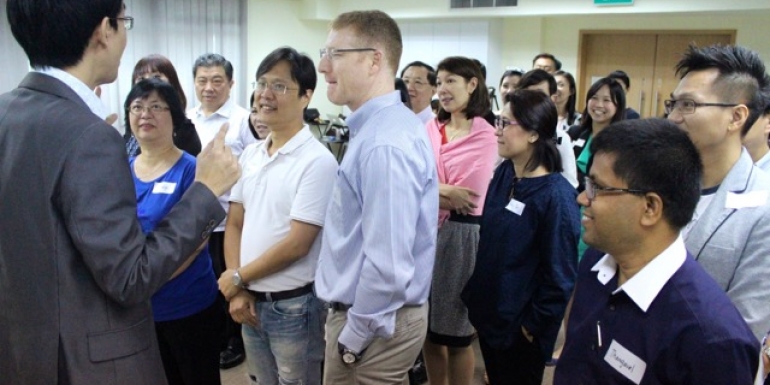After conducting a training session a week ago, my colleague and I picked up the phone to call participants who attended our program. Rather than being blinded by the “trainer’s syndrome” (where trainers walk away thinking that they ran a great program while the participants don’t share the same level of enthusiasm), we asked each person what they enjoyed about the program and what could have been different.
Ken Blanchard once said that “feedback is the breakfast of champions”. It is my firm belief that the public will provide honest feedback, only if you dare to ask them what they think about your offer. We can only get better when we listen and re-calibrate ourselves to their inputs on “what is working” and “what could have been different”.
The difficult part is to drop our own ego, listen attentively and not justify when you receive feedback. I’ve seen many leaders, upon hearing feedback, constantly justify or give reasons why certain things happened. This can sometimes make their team members feel that ‘there’s always a reason to something’ or that you are just not interested in their candid feedback. I do understand there’s a need for a leader to give different views, but it is more important to listen carefully first and not jump in with another reason.
Listening to feedback is also not easy, this is because people can be brutally honest. They can sometimes see through your blindspots, errors in your slides, incongruence or even the extra space you have between the words in your notes.
To me, creating a successful training program, better service levels, more engagement at work, better communication and many more, first starts with a person carefully listening to the feedback to what worked and didn’t work. Not every project or strategies work well right from the beginning, but it is always a series of deliberate calibration to ensure that it is better than the last time you ran it.
Projects or programs are successful because you calibrate it over time, and this is only possible when you hear unadulterated feedback.
Here’s another issue: In most feedback sessions, people tend to focus on the negatives. They give comments on your short-falls, but they don’t say much about where you did well. You see, hearing about where you have succeeded is even more important than areas you did not succeed. You only create more success but focusing more on what worked and reducing what didn’t.
So, how to do solicit positive feedback from people? Here are some tried and tested ones. Ask the following questions:
- What went well for us?
- What are we proud of?
- What are some things that we need to do more of?
These positive questions must come first before you start asking others on what can be better. This will help your feedback session be more optimistic and gives you a clear understanding of the strategies that you have employed that worked. After this, you can start to ask what can be better and this is where you need to shut up and listen….
This article first appeared in Deep Impact Blog.



